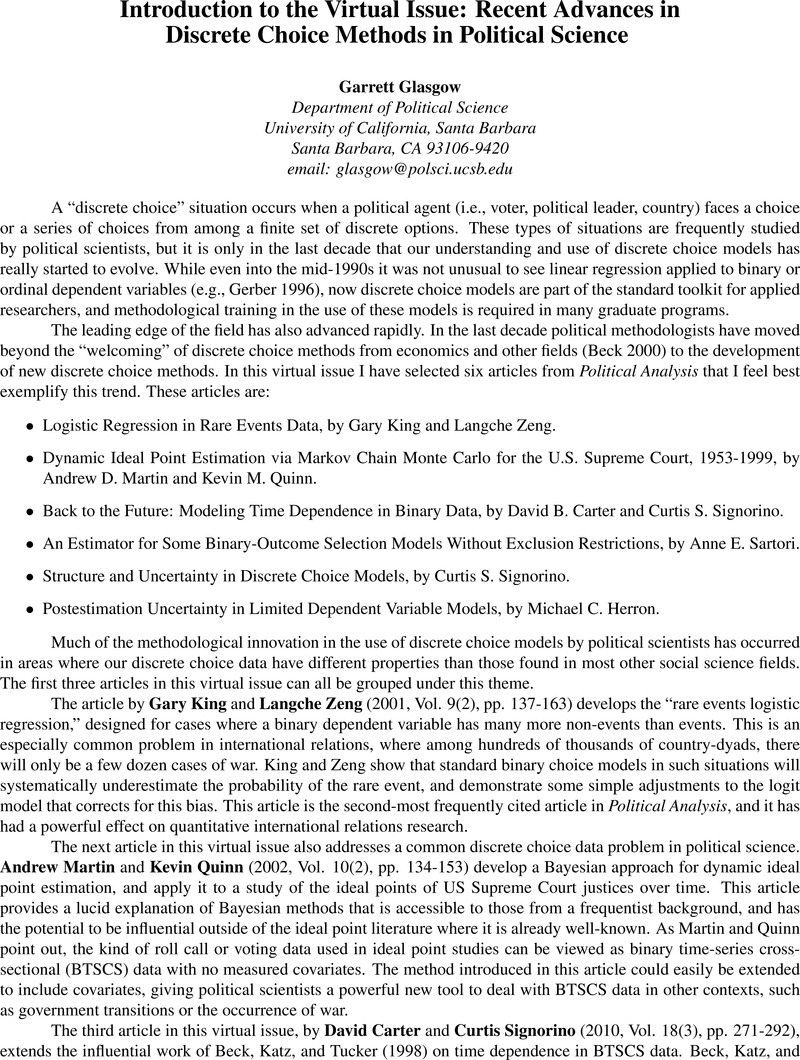Crossref Citations
This article has been cited by the following publications. This list is generated based on data provided by Crossref.
Lu, Xiao
2020.
Discrete Choice Data with Unobserved Heterogeneity: A Conditional Binary Quantile Model.
Political Analysis,
Vol. 28,
Issue. 2,
p.
147.
Liebe, Ulf
and
Meyerhoff, Jürgen
2021.
Mapping potentials and challenges of choice modelling for social science research.
Journal of Choice Modelling,
Vol. 38,
Issue. ,
p.
100270.
Chorus, Caspar G.
Liebe, Ulf
and
Meyerhoff, Jürgen
2021.
Models of moral decision making: Theory and empirical applications in various domains.
Journal of Choice Modelling,
Vol. 39,
Issue. ,
p.
100280.





